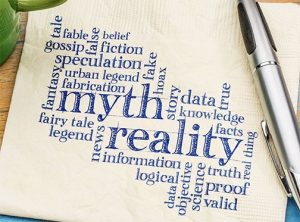On Feb. 1, Dr. Nicole A. Cooke, Dr. Stephanie Craft, Dr. Barbara M. Jones, and Dr. Rachel M. Magee gave presentations at LIS on the topic of fake news. The lecture focused on “defining fake news and discussing how it relates to literacy and information behavior.”

The presentations started up talking about social media and social network sites, which can be referred to as SNS. There are various types of social media engagement, or “genre”. The speaker stressed on we should not pay attention to individuals but to the technology.
The speaker mentioned that we are in the age of post truth: people tend to believe truth that has emotional appeals, but not necessarily true. Moreover, audience are in the “filter bubble”, which means they are looking for information that corresponds with their inner believe. For example, people intend to take the top hits on Google when researching, or clicking on titles that reassure their previous assumptions.
Fake news can be sorted into two categories: misinformation and disinformation. Misinformation is info that is wrong but rapidly spread, but is not be done intentionally; while disinformation is purposely put out fake news to earn the blogger money. From the psych point, sharing fake twitter post could satisfy people’s need to be liked.
The speaker gave several guidelines on how to move past fake news, which includes triangulate,check your own biases, read outside your bubble, know the difference between satire, propaganda, infotainment. And when clicking on the headline, check the source, and ask yourself, what’s their angle? Is there an “about” page? Is the language inflammatory? Is the site overrun with ads?
The speaker emphasized we should care about the news and be news watchdogs because democracy won’t work without news.
The session ended with hands-on exercises with audiences for addressing fake news.
Sources:
https://ischool.illinois.edu/events/2017/02/01/fake-news-workshop

